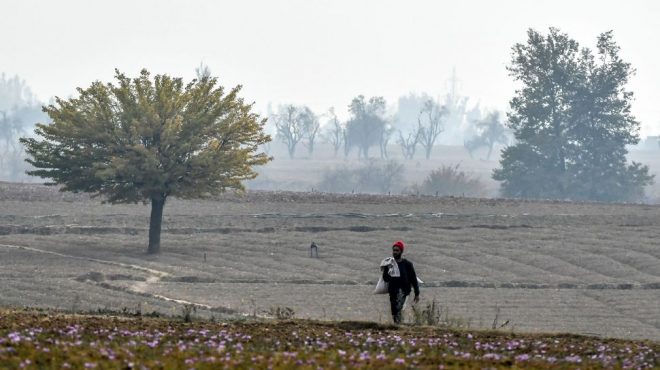While the global food system is a key contributor to greenhouse gas emissions, some agriculture experts contend that the solutions to climate change can be found through revolutionizing the way we farm.
A new study published in Nature Food revealed that more than a third of global greenhouse gas emissions come from the production, distribution and consumption of food, underscoring the need for new, sustainable technologies in the industry.
Jamie Adams, the senior adviser for international affairs in the office of the chief scientist at the U. S. Department of Agriculture, said that the role of technology in agriculture is twofold during a virtual panel on solutions for a food-secure future hosted by Foreign Policy magazine in partnership with the Embassy of the United Arab Emirates.
Adams said the role of science and technology in agriculture cannot be stressed enough “if we’re to achieve our ambitious goals that include food systems that are to provide safe, nutritious, affordable and accessible food for all, while also enhancing economic viability of farming, advancing equitable livelihoods across food systems and conserving natural resources and addressing the climate crisis.”
Some goals that Hana al-Hashimi, the head of the office of the UAE Special Envoy for Climate Change, highlighted for sustainable solutions in agriculture are developing technologies that can maximize yields, optimizing resources and reducing carbon emissions.
“We want to see renewable energy displace hydrocarbon energy in every segment of the food value chain, from water pumping to refrigeration,” she said. “And we want to develop foods that require minimal amounts of land and water.”
She also cited vertical farming, a method that does not require sunlight, soil or water, as a way to produce food without causing detrimental effects on the environment.
Although the agriculture industry helps fuel climate change and innovations are required to mitigate the impacts of farming on the environment, farmers suffer as a result of rapidly changing conditions on our planet, too – evidenced by the most recent drought in California which forced farmers to sell their livestock, and the floods in China, which wiped out pigs in farms across Henan.
Ruramiso Mashumba – a Zimbabwe-based commercial farmer and the founder of Mnandi Africa, an organization that helps rural women combat poverty by equipping them with skills and knowledge in agriculture – highlighted the challenges Zimbabwe’s changing climate poses to farmers.
“Just like the rest of the globe, we’re dealing with climate change that’s affecting our productivity,” she said during the panel discussion. “But also more so than that we are in a very arid environment. And we have much more limited arable and permanent cropland than the rest of the world and import dependence is quite large here.”
She mentioned recurrent droughts that have been impacting Zimbabwe for the last three years, except for the rains from the most recent season, as reason for citing climate change as the “number one” challenge facing Zimbabwean farmers.
But the impetus to change the agriculture sector does not solely lie on farmers; instead, international cooperation on a policy level is necessary to slow the impacts of climate change as well.
Al-Hashimi highlighted a new initiative – the Agricultural Innovation Mission for Climate – between the UAE and the U.S. that Prime Minister Sheikh Mohammed bin Rashid Al Maktoum and U.S. President Joe Biden announced at the leader summit on climate in April as a way policymakers are coming together globally to tackle climate change in the agriculture sector. The initiative will bring together a “diverse group of countries” to “start to unpack the opportunities that we seek collectively for economic diversification for creating knowledge, skills and jobs, while also contributing practical solutions to this global challenge.”
The senior adviser to the U.S. Special Presidential Envoy for Climate, David Livingston, said that the U.S.’s partnership with the UAE on this initiative serves to recognize the importance of focusing on agriculture as a place for addressing climate change on the panel.
“The agricultural sector jumped out as one that is absolutely pivotal to getting to net zero (emissions) by midcentury, to addressing not only climate in terms of emissions, but also addressing adaptation and resilience,” he said. “And yet, at the same time, it also jumped out as a sector in which we’re crucially not doing enough – not doing enough in terms of actions today, but also not doing enough in terms of the investment that we need to make to enable greater adaptation and mitigation actions in the future.”
 Alghadeer TV Alghadeer TV
Alghadeer TV Alghadeer TV

